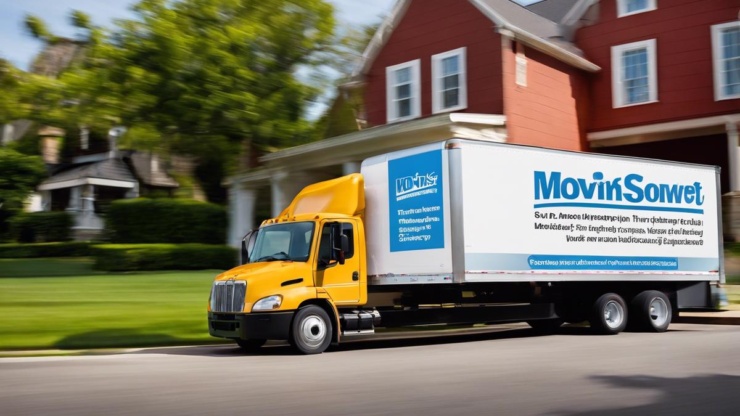Moving Tips
When is the best time to move?
Take all factors into consideration when deciding on the best time for you to move. Keep in mind, however, that the summer months (mid-May to mid-September) and the beginning and end of each month (regardless of the season) are particularly busy for moving companies and may require more flexibility and advanced scheduling.
How do I determine which moving companies to contact?
Ask your neighbors, friends, coworkers and family members if they can make recommendations. Investigate each of the movers you select with the Better Business Bureau. Good service is the best measure of a good mover.
When should I contact moving companies for estimates?
Try to provide moving companies with as much notice as possible, especially if you are moving during the summer months. We recommend at least four to six weeks before your desired moving date. This will increase your likelihood of securing the pickup and delivery dates you desire.
What happens when a relocation consultant comes to my home?
The relocation consultant will arrive at your home to perform a visual survey of your items. The consultant must be able to clearly see what is being moved in order to provide you with an accurate estimate. If you know of items that are out of view or will be eliminated, be certain to point them out to the consultant. Once the visual survey is completed, the consultant will calculate the weight, packing cost and any other charges related to your move.
Household Moving Tips
Preparing For The Move
Have a garage sale. Get rid of everything you don’t need before you move.
Get organized now. Don’t wait until the last minute. Make list of things you need to do and when.
Make sure you are ready for the packers and movers. Don’t forget to do the laundry, wash the dishes, pack your suitcases, disconnect computers, stereos and VCRs.
Set aside those items that you will be taking with you and clearly mark them as Do Not Pack.
Arrange to close your accounts at your local bank and opens accounts in your new hometown.
Obtain a change-of-address kit from your post office or go to https://moversguide.usps.com
Drain the gas and oil from all your power equipment (lawnmower, edger, etc.)
Schedule house cleaning and other home services for the day after loading.
Have your utilities shut off the day after loading (gas, electric, telephone, etc)
Make your travel arrangements for the day after loading. In case of weather delays or other unforeseen problems, you wouldn’t want to miss a flight or other travel related appointment.
Before the moving truck leaves for your destination, give the driver your phone numbers where you can be reached. It is also a good idea to get the driver’s cell phone number.
Be aware of items that can’t be moved with the mover.
These items include:
Flammable Items
Combustible Items
Aerosol cans
Hazardous Materials
Gasoline
Plants
Paints
Ammunitions and Explosives
Jewelry
Legal Documents (wills, financial papers, insurance documents, etc.)
When using a mover, remember that you are the customer and the boss. If you have any concerns at all, contact your move coordinator immediately.
Amid the bustling urban landscape of New York City, the role of professional packers has been increasingly solidified. With their unmatched expertise and utilization of cutting-edge technology, these professionals go beyond the traditional packing and moving tasks, as they help…
Read more
Rooted in the heart of New York, Brooklyn is a thriving borough that never sleeps, continually bustling with people on the move. Whether upgrading to larger homes, setting up more spacious office spaces, or simply transferring to different neighborhoods, the…
Read more
In the heart of New York City, the bustling borough of Manhattan is home to a dynamic and evolving moving industry. With the changing demands of startups and real estate trends, moving companies have been compelled to reimagine and reshape…
Read more
Whether you’re moving within the confines of the Big Apple or are making a cross-country leap, securing your possessions with moving insurance is a crucial step often overlooked. This guide aims to familiarize you with the essential aspects of NYC…
Read more
Moving to New York City provides a unique blend of opportunities and complexities, especially when viewed from a business-centric perspective. This bustling metropolis offers a vibrant real estate market, unique regulatory considerations, comprehensive logistics, and incredible diversity both in business…
Read more
If there’s one thing we can all agree on when it comes to running a business, it’s that today’s world requires a proactive approach towards environmental sustainability. It’s no longer about just doing business; it’s about doing business responsibly. A…
Read more
In an era where convenience and efficiency reign supreme, the movement towards using moving container services for relocation and storage purposes continues to gain traction. Today’s savvy consumer values a business model that offers ease of use, cost-effectiveness, and flexibility,…
Read more
In today’s world, the COVID-19 pandemic has thrown several businesses for a loop, necessitating swift adaptations and pivotal transformations in traditional operations. Particularly impacted is the moving industry, once reliant on face-to-face interactions and physical processes, but now compelled to…
Read more
Understanding the complex nature of the long-distance moving industry, especially within Florida, is critical for both residential and commercial clients looking to leverage these services. This intricate field has its roots entwined with fluctuating factors such as stringent government regulations,…
Read more
When you’re standing on the precipice of a major move, one of the biggest considerations is undoubtedly the cost. Moving, whether across the city or country, comes with a myriad of compounding expenses that can often be daunting for clients…
Read more
From the hustle and bustle of packing up a home to the details of insurance coverage, making a move can prove itself to be a daunting task for many. When the need for a professional mover arises, understanding their operations…
Read more











